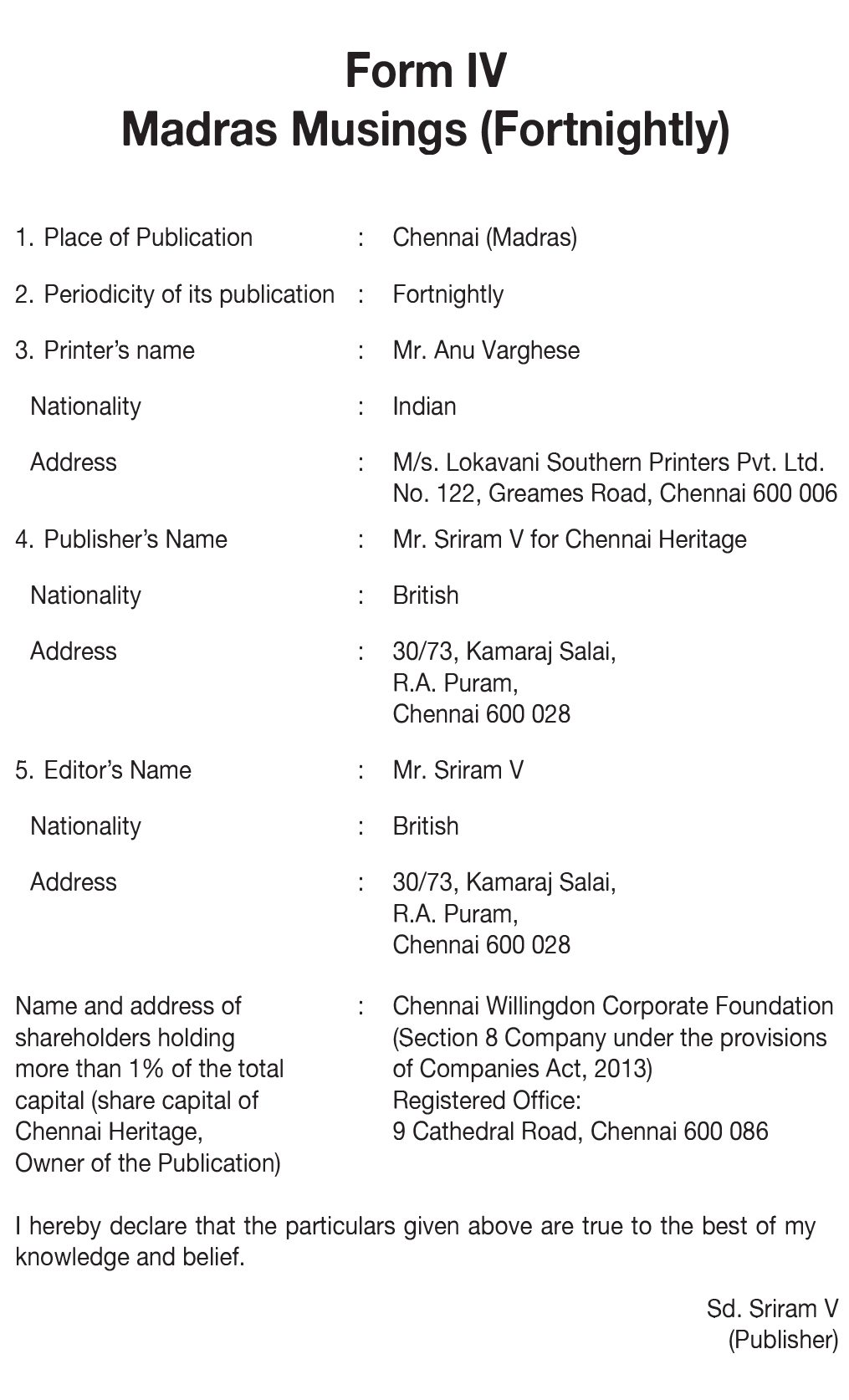Registered with the Registrar of Newspapers for India under R.N.I 53640/91
Vol. XXIX No. 23, March 16-31 2020
Can Chennai Handle a Pandemic?
by The Editor
As on March 8, 2020, the World Health Organisation has confirmed that the number of those afflicted with COVID-19 has exceeded 100,000 worldwide. Over 4,000 people have died, while a more cheering and not-often quoted statistic is that 64,000 people have actually survived it. In India, the numbers are small – just around 60 or so infected, while in Chennai it remains reassuringly in single digits. It is claimed that warm or hot weather, something that we are blessed with, inhibits the spread of the virus. Chennai may therefore not be vulnerable. But this is still a good opportunity to reflect on whether we are capable as a city to handle such pandemics.
The WHO communique reminded “all countries and communities that the spread of this virus can be significantly slowed or even reversed through the implementation of robust containment and control activities.
China and other countries are demonstrating that the spread of the virus can be slowed and impact reduced through the use of universally applicable actions, such as working across society to identify people who are sick, bringing them to care, following up on contacts, preparing hospitals and clinics to manage a surge in patients, and training health workers.”
Are we doing this? Thus far Chennai has kept a tight watch on the airport – most cases have been identified here. The immigration has a not-very-impressive arrangement with a couple of people keenly watching those coming in. This may not be effective. The body scanners that read temperature are what is needed – this eliminates all human intervention. Such gadgets are not new and have been around in airports overseas for years.
The airport is managing to the extent it can and hospitals and health centres have been instructed to report all suspicious cases for further investigation. That is to the good. But what about railway stations and bus terminals? There is no monitoring of any kind there. While COVID-19 may not warrant such precautions at least right now, can such entrepots become screening points in case such a situation is warranted in future? It boggles the mind to even contemplate people being screened at suburban railway stations, leave alone Central and Egmore but that is what will be demanded in case there is a pandemic.
Next, what about spreading awareness on hygiene? True, the Centre’s Department of Health has issued a directive that all cell phone calls be preceded with a message on this subject but it is presently in English, which many people may not even be aware of. Secondly, it asks people to call a Delhi number for clarifications which most people will not do. Messages in Tamil are the need of the hour and this can be safely entrusted to the health department of the Corporation of Chennai and also the State’s Health Department. People need to be educated that surgical masks are not the best remedy and maintaining clean hands are far more important. This the administration has not even begun communicating. Taken overall, while a Government need not spread panic, it can at least be proactive. Of course, we can take comfort in the fact that no other State of India appears to be geared up either but then are we not supposed to be the leaders in healthcare? In conclusion it is best to quote from the WHO’s communique –
“Allowing uncontrolled spread should not be a choice of any government, as it will harm not only the citizens of that country but affect other countries as well.
We must stop, contain, control, delay and reduce the impact of this virus at every opportunity. Every person has the capacity to contribute, to protect themselves, to protect others, whether in the home, the community, the healthcare system, the workplace or the transport system.”
This applies not only to entire countries but to constituent States and cities. Chennai needs to realise its responsibility.


